Erik Schmidt
Mood Classification Using Listening Data
Oct 22, 2020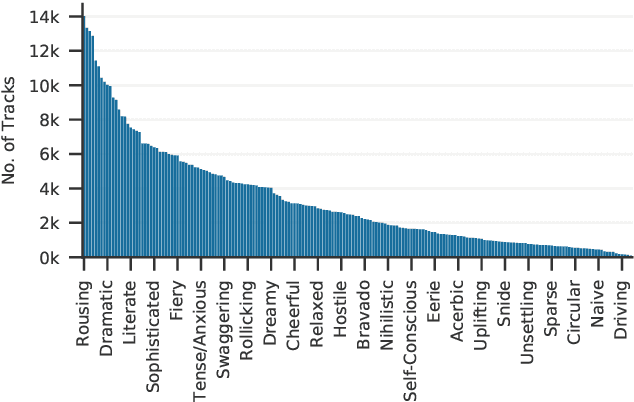
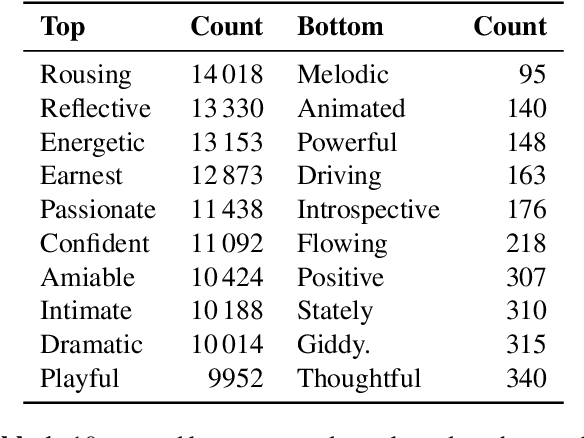
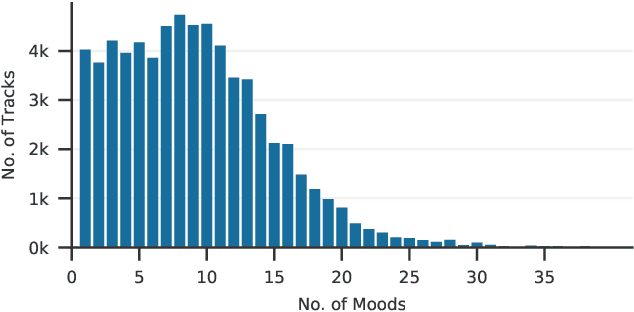
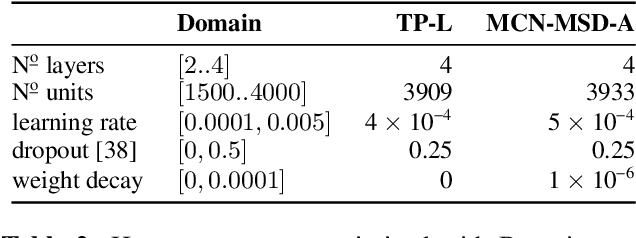
Abstract:The mood of a song is a highly relevant feature for exploration and recommendation in large collections of music. These collections tend to require automatic methods for predicting such moods. In this work, we show that listening-based features outperform content-based ones when classifying moods: embeddings obtained through matrix factorization of listening data appear to be more informative of a track mood than embeddings based on its audio content. To demonstrate this, we compile a subset of the Million Song Dataset, totalling 67k tracks, with expert annotations of 188 different moods collected from AllMusic. Our results on this novel dataset not only expose the limitations of current audio-based models, but also aim to foster further reproducible research on this timely topic.
End-to-end learning for music audio tagging at scale
Jun 15, 2018


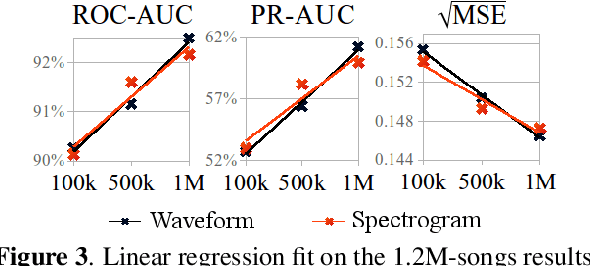
Abstract:The lack of data tends to limit the outcomes of deep learning research, particularly when dealing with end-to-end learning stacks processing raw data such as waveforms. In this study, 1.2M tracks annotated with musical labels are available to train our end-to-end models. This large amount of data allows us to unrestrictedly explore two different design paradigms for music auto-tagging: assumption-free models - using waveforms as input with very small convolutional filters; and models that rely on domain knowledge - log-mel spectrograms with a convolutional neural network designed to learn timbral and temporal features. Our work focuses on studying how these two types of deep architectures perform when datasets of variable size are available for training: the MagnaTagATune (25k songs), the Million Song Dataset (240k songs), and a private dataset of 1.2M songs. Our experiments suggest that music domain assumptions are relevant when not enough training data are available, thus showing how waveform-based models outperform spectrogram-based ones in large-scale data scenarios.
 Add to Chrome
Add to Chrome Add to Firefox
Add to Firefox Add to Edge
Add to Edge